April 11-12, 2023




The Cosmopolitan of Las Vegas
Las Vegas, NV

2023 Program

















Gilead is proud to sponsor the 2023 Summit For more information, please visit www.gilead.com
“What happens in Vegas stays in Vegas.”
We’ve all heard that famous Las Vegas tourism tag line. But, when it comes to HIV and other STIs, that isn’t always the case.

We brought the Biomedical HIV Prevention Summit to “Sin City” to make that point and, in a city where anything and everything sexual is easily available, we wanted to lean in to the importance of celebrating sex and pleasure in the context of HIV prevention.
Why do most people go on PrEP? So they can have sex. it’s as simple as that. Someone who’s celibate isn’t interested in PrEP. Those of us who are active in that field are. We’re VERY interested in fact.
So, while we’re here, we’re going to focus on sex and pleasure and the importance of incorporating sex-positive messaging into HIV prevention. Sex is a fundamental driving force in humans. Expecting everyone to just deny that is unrealistic and cruel. We can prevent HIV while encouraging people to live their full, natural sexual lives. While you’re here in Vegas, we encourage you to not only attend workshops and plenaries but to enjoy yourselvesresponsibly and safely, of course. As members of the HIV community, we have had to deal with a lot in recent months and there are more tough fights ahead. We hope you can take some time to relax and enjoy yourselves and get ready for what’s to come.
Yours in the struggle,

2023 BIOMEDICAL HIV PREVENTION SUMMIT 1
Paul Kawata
So, while we’re here, we’re going to focus on sex and pleasure and the importance of incorporating sexpositive messaging into HIV prevention.
THANK YOU TO OUR SPONSORS

PRESENTING
SUPPORTER

2 2023 BIOMEDICAL HIV PREVENTION SUMMIT
Monday, April 10, 2023
12:00 pm – 7:00 pm
Registration
Location: Belmont Foyer, Level 4
Times listed are in Pacific Time
3:00 pm – 7:00 pm
Exhibit Hall Open
Location: Nolita 1-3, Level 4
Tuesday, April 11, 2023
7:00 am – 4:00 pm
7:30 am – 8:15 am
8:30 am – 10:00 am
Registration Location: Belmont Foyer, Level 4
Breakfast Location: Belmont 3, 4, 7, 8, Level 4
Morning Plenary
“Sex is natural, sex is fun.” The politics of sex and pleasure in the age of pandemics
Location: Belmont 1, 2, 5, 6, Level 4
10:15 am – 5:00 pm
Exhibit Hall Open (closed during plenary sessions)
Location: Nolita 1-3, Level 4
10:30 am – 12:00 pm
SESSION 1 WORKSHOPS
Entre Hermanos: Using Siblings to Promote PrEP to Latinx MSM
Location: Yaletown 4, Level 4
For Us By Us: Black Women Scholars on PrEP
Location: Condesa 4, Level 2
No Data No More: A Research Scorecard for Transgender Inclusion Location: Yaletown 1, Level 4
Sex, Baby: Let’s Tell Stories About You and Me
Location: Condesa 3, Level 2
Understanding Taboo Sexuality, from Queer Sex to Bug Chasing
Location: Mont Royal 1, Level 4
Uso de la Cultura como medio de expansión de PrEP
Location: Yaletown 2, Level 4
What’s Next? Understanding Science of Getting an Effective HIV Vaccine.
Location: Condesa 5 & 6, Level 2
Spotlight American Indians Location: Condesa 9, Level 2
Policy Barriers To PrEP and Community Recommendations For National PrEP Program
Location: Mont Royal 2, Level 4
Pharmacy based PrEP Prescribing Innovation in Nevada, Meeting Educational Demand
Location: Yaletown 3, Level 4 1:00 pm – 2:30 pm Afternoon Plenary
12 noon - 1:00pm Lunch Location: Belmont 3, 4, 7, 8, Level 4
Tennessee and Beyond. The Fallout of Refusing Federal Aid
Location: Belmont 1, 2, 5, 6, Level 4
AGENDA AT A GLANCE 2023 BIOMEDICAL HIV PREVENTION SUMMIT 3
2:45 pm – 4:15 pm
SESSION 2 WORKSHOPS
The Culture of Sex and Sexual Pleasure in Faith Spaces
Location: Condesa 3, Level 2
Hey CIS, can we talk….? Black Women Sexuality and PrEP
Location: Condesa 4, Level 2
Making Biomedical Interventions Accessible to Transgender Persons and Gender Non-conforming
Location: Condesa 9, Level 2
Missing Voices: Engagement of CisHet Black Men in HIV Research
Location: Condesa 5 & 6, Level 2
Módulo de Entrenamiento en Investigación en Prevención del VIH
Location: Mont Royal 1, Level 4
4:30 pm - 6:00 pm SESSION
3 WORKSHOPS
(The PYNK) Perceptions You Never Knew Impact HIV Prevention
Location: Yaletown 2, Level 4
Can’t Talk about a Biomedical Sexual Revolution without Reproductive Justice
Location: Mont Royal 2, Level 4
Culturally Informed Approach to HIV Prevention Research in Kink-Involved Populations
Location: Condesa 4, Level 2
Long-Acting Injectable: Revolutionary Prevention Drugs Require Revolutionary Adaptations in Delivery
Location: Condesa 5 & 6, Level 2
Federal funding needed for a National PrEP Program
Location: Condesa 9, Level 2
Not ready to stop Chemsex: Lessons learned from a town-hall
Location: Yaletown 4, Level 4
PrEP as a Safety Planning Tool for Survivors of IPV
Location: Yaletown 1, Level 4
The role of doxycycline post-exposure prophylaxis (doxyPEP) in sexual pleasure
Location: Mont Royal 2, Level 4
PrEP Housing: Addressing PrEP Adherence Using A Housing First Approach
Location: Yaletown 3, Level 4
No Fats, No Femmes, No Asians
Location: Yaletown 2, Level 4
Pleasure Principle: Brown Sugar Vol PrEP
Location: Mont Royal 1, Level 4
Spearheading national prep programing through peer led collaborative practice agreements
Location: Condesa 3, Level 2
Barriers in Healthcare: The Black & Trans Male Experience
Location: Yaletown 1, Level 4
PEP – The Rodney Dangerfield of HIV Prevention
Location: Yaletown 3, Level 4
PrEP in Black America An Equity Movement in HIV Prevention
Location: Yaletown 4, Level 4
AGENDA AT A GLANCE 4 2023 BIOMEDICAL HIV PREVENTION SUMMIT
Wednesday, April 12, 2023
7:00 am – 12:00 pm Registration
Location: Belmont Foyer, Level 4
7:30 am – 8:15 am Breakfast
Location: Belmont 3, 4, 7, 8, Level 4
8:30 am – 10:00 am
Morning Plenary
Taking control over our bodies: Black women, sex, violence, and HIV
Location: Belmont 1, 2, 5, 6, Level 4
10:15 am – 12:00 pm
Exhibit Hall Open
Location: Nolita 1-3, Level 4
10:30 am – 12:00 pm
SESSION 4 WORKSHOPS
HIV Prevention Cycle of Care: A PrEP
Implementation Model
Location: Condesa 5 & 6, Level 2
CAB 4 PrEP: Opportunity for Advancing Equity and Improving Access
Location: Mont Royal 2, Level 4
Emerging Evidence Addressing the PrEP Continuum for Black Cisgender Women
Location: Condesa 3, Level 2
HBCU Stakeholder-led HIV Prevention: Project PEER (Prevent, Engage, Empower, Respond)
Location: Yaletown 1, Level 4
Implementing Innovative Interventions Amongst Latin@ TGNC and Communities of Color
Location: Mont Royal 1, Level 4
12:00 pm – 1:00 pm Lunch
Location: Belmont 3, 4, 7, 8, Level 4
La importancia del estatus neutral para los nuevos inmigrantes
Location: Yaletown 2, Level 4
U=U <3 PrEP: Capacity building to support status neutral approaches
Location: Condesa 9, Level 2
We Have Sex, Too! Biomedical Interventions for Older Gay Men
Location: Condesa 4, Level 2
What’s This Copay? USPSTF PrEP Recommendations and Insurance
Location: Yaletown 4, Level 4
HIV Prevention Access in the Transgender Community of East Tennessee
Location: Yaletown 3, Level 4
1:00 pm – 2:30 pm
Afternoon Plenary
The 2023 PrEPpy Awards and a National PrEP Program
Location: Belmont 1, 2, 5, 6, Level 4
AGENDA AT A GLANCE 2023 BIOMEDICAL HIV PREVENTION SUMMIT 5
HOTEL MAP
FIRST LEVEL
FIRST LEVEL
SECOND LEVEL
SECOND LEVEL
THIRD LEVEL
10 2023 BIOMEDICAL HIV PREVENTION SUMMIT
8 1 2 3 4 5 6 7 9 RESTAURANT CONDESA BELLAVISTA BOARDROOM JARDINS BOARDROOM CONDESA COMMONS ELEVATORS ELEVATORS ELEVATORS ELEVATORS M W HA R MON AV E NU E LA S V E G A S B L V D SO U T H ESCALATOR V ALE T & P A RKIN G EN T RANC E EN T RANC E ENTRANCE VESPER BAR VITALS BOOK & STAGE QUEUE BAR POP-UP MARQUEE THE CHANDELIER BOND THE HENRY LOBBY CASINO CASINO CASINO BOULEVARD CASINO HIGH LIMITS CASINO VIP GUESTS ELEVATORS ELEVATORS ELEVATORS ELEVATORS M W ESCALATOR ESCALATOR
8 1 2 3 4 5 6 7 9 RESTAURANT CONDESA BELLAVISTA BOARDROOM JARDINS BOARDROOM CONDESA COMMONS ELEVATORS ELEVATORS ELEVATORS ELEVATORS M W HA R MON AV E NU E LA S V E G A S B L V D SO U T H ESCALATOR
V ALE T & P A RKIN G EN T RANC E EN T RANC E ENTRANCE VESPER BAR VITALS BOOK & STAGE QUEUE BAR POP-UP MARQUEE THE CHANDELIER BOND THE HENRY LOBBY CASINO CASINO CASINO BOULEVARD CASINO HIGH LIMITS CASINO VIP GUESTS ELEVATORS ELEVATORS ELEVATORS ELEVATORS M W ESCALATOR ESCALATOR
THIRD LEVEL
THIRD LEVEL
FOURTH LEVEL
FOURTH LEVEL
2023 BIOMEDICAL HIV PREVENTION SUMMIT 11 HOTEL MAP CONDESA BELLAVISTA BOARDROOM JARDINS BOARDROOM CONDESA COMMONS
H ARMON AV ENU E LA S V E G A S B L V D S OU T H RESTAURANT DISTRICT 5 2 6 5 4 3 2 1 4 3 2 1 1 6 7 8 1 2 3 4 PRAGA GRÀCIA COMMONS CASTELLANA BRERA PRAGA COMMONS GRÀCIA BRERA COMMONS CASTELLANA COMMONS ELEVATORS ELEVATORS ELEVATORS ELEVATORS ELEVATORS M W M M W W ELEVATORS ESCALATOR
POOL DECK 3 4 3 2 1 2 1 2 1 5 8 6 7 1 4 2 3 YALETOWN YALETOWN COMMONS BELMONT COMMONS BELMONT NOLITA MONT-ROYAL MONT-ROYAL COMMONS ELEVATORS ELEVATORS ELEVATORS ELEVATORS ELEVATOR M M W W ELEVATORS H ARMON AV ENU E L AS V E G A S B L VD SOUT H ESCALATOR
H ARMON AV ENU E LA S V E G A S B L V D S OU T H RESTAURANT DISTRICT 5 2 6 5 4 3 2 1 4 3 2 1 1 6 7 8 1 2 3 4 PRAGA GRÀCIA COMMONS CASTELLANA BRERA PRAGA COMMONS GRÀCIA BRERA COMMONS CASTELLANA COMMONS ELEVATORS ELEVATORS ELEVATORS ELEVATORS ELEVATORS M W M M W W ELEVATORS ESCALATOR
POOL DECK 3 4 3 2 1 2 1 2 1 5 8 6 7 1 4 2 3 YALETOWN YALETOWN COMMONS BELMONT COMMONS BELMONT NOLITA MONT-ROYAL MONT-ROYAL COMMONS ELEVATORS ELEVATORS ELEVATORS ELEVATORS ELEVATOR M M W W ELEVATORS H ARMON AV ENU E L AS V E G A S B L VD SOUT H ESCALATOR
EXHIBITORS 12 2023 BIOMEDICAL HIV PREVENTION SUMMIT TABLE ORGANIZATION/COMPANY 49 AIDS United 20 American Exchange 10 Asian & Pacific Islander American Health Forum 25 Avita Pharmacy 8 Bedroom Kandi 23 bioLytical Laboratories Inc 45 Commando 38 Curant Health 29 CVS Health 32 Denver Prevention Training Center 42 Deviant 11 Genoa Healthcare 5, 6 and 7 Gilead Sciences 13 HealthMerch 44 Healthy MD 35 Host Committee 30 Human Rights Campaign 37 Huntridge Family Clinic 18 Janssen 41 Merck & Co., Inc. 36 MISTR 43 Music City Creative Print Shop 14 My Brother’s Keeper 15 NASTAD 22 National Network to End Domestic Violence 33 NC AIDS Action Network 3 and 4 NMAC 46 OraSure Technologies 21 Physicians Rx Pharmacy + PharmalytIQ 16 Q Care Plus 39 Say It With A Condom 34 Southern AIDS Coalition 24 The AFIYA Center 12 The O’Neill Institute for National and Global Health Law 48 The SEED Project
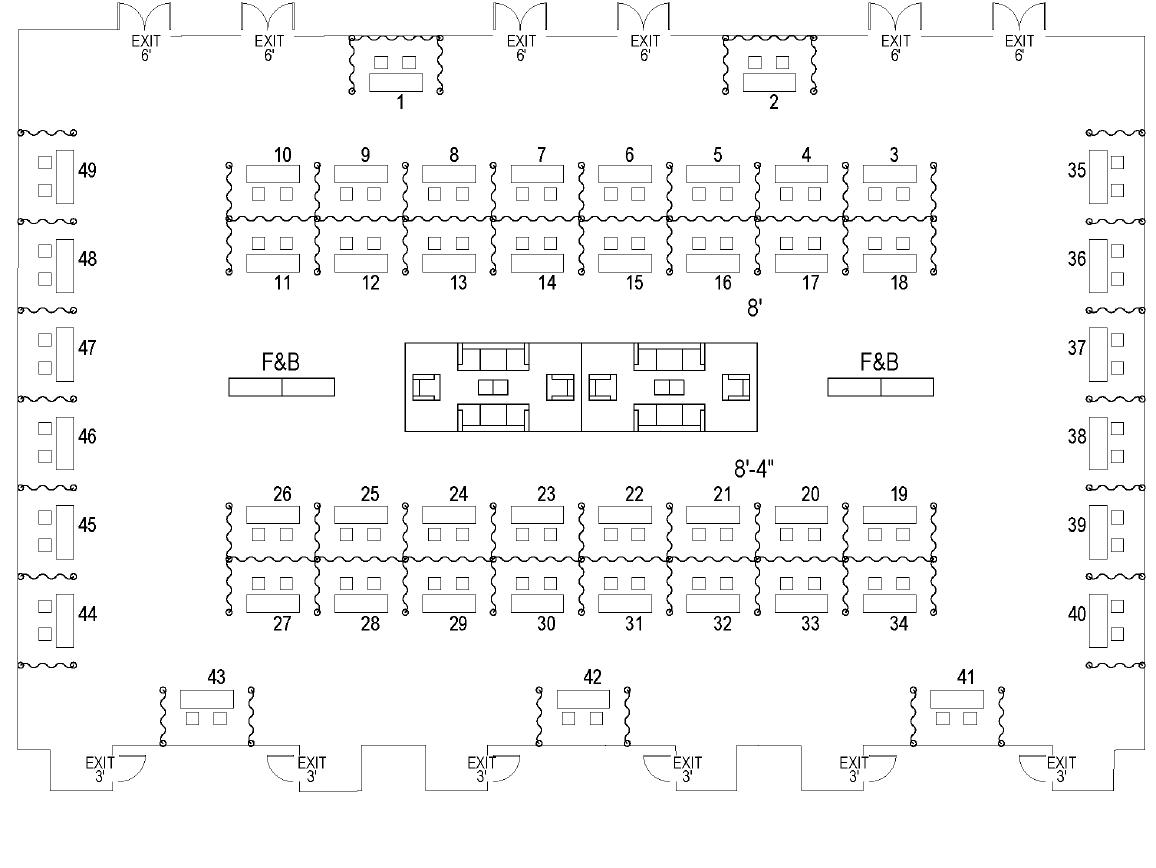
EXHIBITOR MAP 2023 BIOMEDICAL HIV PREVENTION SUMMIT 13 TABLE ORGANIZATION/COMPANY 28 THRIVE Support Services 27 TOUCHPOINT SOLUTION, INC. 9 U.S. Department of Health and Human Services, Office of Infectious Disease and HIV/AIDS Policy 26 U=U plus 40 University of California San Francisco 31 Us Helping Us People Into Living 19 ViiV Healthcare 47 Washington University in St. Louis
Tuesday, April 11, 2022
8:30 am – 10:00 am
MORNING PLENARY
“Sex is natural, sex is fun.” The politics of sex and pleasure in the age of pandemics
Location: Belmont 1, 2, 5, 6, Level 4
Biomedical HIV prevention and treatment reignited conversations about and changed how we have sex. In the beginning, the AIDS movement fought for the right to enjoy sex, preserving the erotism of the experience and keeping it pleasurable and safe. Learn the historical perspectives on the politics of sex positivity during the last four decades of the HIV pandemic to the present days of COVID and MPOX. We will discuss how pleasure-centric interventions can help make informed choices about which biomedical HIV prevention tools to use without compromising desire, pleasure, and human connection. Discussions will include kinks, barebacking, fetish, BDSM, Chemex, group sex, bathhouses/sex clubs, porn, consent, and more.
Speakers
Moupali Das, MD, Executive Director, Clinical Development, Gilead Sciences

Rodney McCoy, Jr., Research Assistant, Community Health Educator, and sex-positive Leatherman


Victoria Von Blaque, Contract Manager, Transgender Equity Consulting


Demetre Daskalakis, MD MPH, Deputy Coordinator National Mpox Response, The White House (on assignment from Director for the Division of HIV Prevention role at CDC)

Deondre B. Moore, GLAAD Award Winning activist or HIV Plus 2022 person of the year
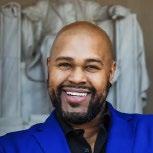

Justin Davis aka JD Blackstone, a sex positive content creator
Michelle López, Einstein CFAR
14 2023 BIOMEDICAL HIV PREVENTION SUMMIT TUE 4/11
SUMMIT MORNING PLENARY
10:30 am – 12:00 pm
Entre Hermanos: Using Siblings to Promote PrEP to Latinx MSM
Location: Yaletown 4, Level 4
Track: Implementation Research and Evaluation
Level: Advanced
Presenters:
Homero E. del Pino, Ph.D, Charles R. Drew University of Medicine and Science, Los Angeles, CA
Petra Durán, BS, Charles R. Drew University of Medicine and Science, Los Angeles, CA
Edwin Rojas, MPH, St. John’s Community Health, Los Angeles, CA
Angel Martínez, MS, Department of Health Services, Los Angeles, CA
We pilot-tested a novel, culturally-specific intervention, Entre Herman@s, to engage the siblings of Latinx MSM (LMSM) in the promotion of PrEP. We tested for feasibility and acceptability.
For Us By Us: Black Women Scholars on PrEP
Location: Condesa 4, Level 2
Track: African American Women and PrEP and PEP
Level: Intermediate
Presenters:
Neena Smith-Bankhead, Emory University, Atlanta, GA
Dr. Brittany Williams, University of Vermont, Burlington, VT
Christian Spears Georgia Southern University, Statesboro, GA
According to the National HIV/AIDS Strategy (20222026), one of the critical focuses is to expand and improve implementation of safe, effective prevention interventions, including treatment as prevention, PrEP, PEP, and SSPs, and develop new options for preventing new HIV infections. Over time, new, innovative approaches have been developed to reach priority populations, however, those strategies and activities have been targeted at only one primary population: gay and bisexual men. African American women account for the highest HIV diagnosis among women and have been overlooked concerning PrEP education, interventions, and marketing. In this workshop, Black women research scholars will provide attendees with a scholarly overview of the HIV and PrEP trends among Black women and
examine factors that may influence the consideration of and barriers to PrEP uptake among Black women.
No Data No More: A Research Scorecard for Transgender Inclusion
Location: Yaletown 1, Level 4
Track: Community participation in HIV biomedical prevention research
Level: Intermediate
Presenters:
Brian Minalga, Office of HIV/AIDS Network Coordination, Seattle, WA
Cindra Feuer, AVAC, New York, NY
The world has begun to recognize transgender and gender-diverse (TGD) people as a key population in the global HIV response. Limited estimates suggest that global HIV incidence is 66 times higher for transgender women, 7 times higher for transgender men, and unknown for gender nonbinary people relative to cisgender people. Most agree that TGD people face a disproportionate burden of HIV, yet still, the refrain of “no data” echoes when it comes to TGD representation in HIV research. If we are to end the epidemic, we need biomedical research data that are representative of TGD communities. We have designed a Scorecard tool with which to hold researchers accountable for the meaningful inclusion of TGD people in all HIV clinical trials. Join this session to learn how milestone HIV studies from 1991the present have scored on TGD inclusion—and how you can ensure “No Data No More.”
Sex, Baby: Let’s Tell Stories About You and Me
Location: Condesa 3, Level 2
Track: Prevención biomédica para personas hispanoparlantes
Level: Intermidate
Presenters:
Alexi Diaz Leon, ConVIHvir, San Juan, PR
Irving S. Rodríguez Acosta, ConVIHvir, San Juan, PR Damián Cabrera-Candelaria, NMAC, Washington, DC
What is storytelling? How does telling our stories relate to our sexual practices? When we tell someone that we live with HIV that immediately creates
SUMMIT WORKSHOPS: SESSION 1 2023 BIOMEDICAL HIV PREVENTION SUMMIT 15 TUE 4/11
Session 1 Workshops
a narrative about our bodies and pleasure. This workshop will focus in the use of storytelling as a tool of empowerment when sharing our lived experiences and stories, with friends, family members, and sexual and romantic partners. The goal is to educate, and rethink, how the narratives about prevention, care and treatment of HIV have an effect in perpetuating and eliminating stigma and all its intersections.
Understanding Taboo Sexuality, from Queer Sex to Bug Chasing
Location: Mont Royal 1, Level 4
Track: Pleasure, erotism and the politics of sex positivity
Level: Intermediate
Presenters:
Mark S. King, My Fabulous Disease, Atlanta, GA
Damon L. Jacobs, Jacobs Marriage and Family Counseling, New York, NY
We often say, “Don’t yuck someone else’s yum,” but are there limits to our capacity to understand, much less empathize with, sexuality we consider taboo? This interactive workshop covers the history of taboo and its place in our culture and HIV prevention messaging, while challenging participants to consider their attitudes toward sexual activity and fantasies that they believe cross the line, from barebacking to S/M to “bug chasing” (pursuing HIV infection, whether real or fantasy). Keep in mind: queer sex of any sort is still widely viewed as not only taboo but criminal, and the criminalization of sex among the marginalized continues at an alarming rate. This provocative workshop will be led by HIV activist and author Mark S. King (“My Fabulous Disease: Humor, Heroics and Heart from a Queer Survivor”) and PrEP advocate and therapist
Damon L. Jacobs (“Absolutely Should-Less: The Secret to Living the Stress-Free Life You Deserve”).
Uso de la Cultura como medio de expansión de PrEP
Location: Yaletown 2, Level 4
Track: Prevención biomédica para personas hispanoparlantes
Level: Intermediate
Presenter:
Moises Cruz Jauregui, Alameda County/east Bay
Getting to Zero, Oakland, California
Este taller está enfocado en identificar los diferentes factores que caracterizan a la cultura de los latinx o hispanohablantes, para que a partir de ellos se pueda establecer una conexión con los miembros de la comunidad. A partir de la identificación de estos, se establecerá un plan que determine el alcance de los programas, los problemas para acceso a los servicios de PrEP y como utilizar la Cultura y el modo de vida para Iniciar y mantener pacientes en PrEP. Los principales aspectos culturales de mayor influencia a utilizar en el taller son: El uso del lenguaje en español, normalización del lenguaje diverso, contratación de personal que vive y es parte de la comunidad, promoción de la Positividad Sexual, inmersión en usos y costumbres, promoción del entretenimiento y exposición de artistas locales.
What’s Next? Understanding Science of Getting an Effective HIV Vaccine.
Location: Condesa 5 & 6, Level 2
Track: New technologies for biomedical HIV prevention
Level: Beginner
Presenters:
Kyle Gordon, HIV Vaccine Trials Network, External Relations Program Manager, Los Angeles, CA
Daniel Driffin, HIV Vaccine Trials Network, External Relations Program Manager, Atlanta, GA
Louis Shakelford, HIV Vaccine Trials Network, External Relations Program Manager, Seattle WA
With more than 1.5 million global new infections each year, and an estimated 30,000 new cases nationally, ending the global HIV/AIDS pandemic will require effective strategies to ensure we have an array of prevention modalities widely accessible for those who may benefit from them. Vaccines are effective as they work with the body to produce an immune response to fight off pathogens, yet the variance of HIV has made the development of a vaccine more challenging. On the hills of an effective vaccine for COVID-19, stakeholders have an opportunity to engage around the immunology and science of HIV vaccines to garner a better understanding of the HIV research pipeline.
SUMMIT WORKSHOPS: SESSION 1 16 2023 BIOMEDICAL HIV PREVENTION SUMMIT TUE 4/11
Pharmacy based PrEP Prescribing Innovation in Nevada, Meeting Educational Demand
Location: Yaletown 3, Level 4
Track: Capacity Building to strengthen organizational effectiveness on PrEP and U=U services
Level: Intermediate
Presenters:
Rob Phoenix, APRN, FNP-C, HIV-PCP, AAHIVS
Christina M. Madison, Pharm.D., FCCP, AAHIVP
Rosanne Sugay, MD, MPH, AAHIVS
Jennifer Bennett PhD, MPH
During Nevada’s 2021 Legislative Session, Senate Bill 325 was passed into law, which allows pharmacists in Nevada to prescribe PrEP and PEP without a prescription. Utilizing pharmacists as a new access point to prevent the spread of HIV is an innovative model to increase access to HIV prevention for hardly-reached populations. The challenge Nevada faced was how to deliver provider education in a format that is accessible statewide for all pharmacists. This workshop will provide an overview of how the Pacific AIDS Education and Training Center-Nevada developed an educational program collaborating with local pharmacists and HIV service providers to meet pharmacist needs. The training was implemented in collaboration with local universities, the state Pharmacy Board, and local hospitals. Pacific AETC-NV also developed an e-learning portal that allows pharmacists to take the required training program at their convenience. This educational implementation model can be replicated in other EHE jurisdictions.
Spotlight American Indians
Location: Condesa 9, Level 2
Track: Community Mobilization and Advocacy
Level: Beginner
Presenter: Leah Baker, JSI Research & Training Institute, Inc., Boston, MA
Native populations HIV cases continue to rise and are disproportionately affected by COVID-19 and
substance use epidemics. Challenges include HIVrelated stigma, rural access to HIV-care, diabetes, and access to essential infrastructure that most Americans take for granted. This session seeks to hear from National Native HIV Advocates on how Native Nations are encouraging healthy mindsets and living to support all who are living with HIV.
Policy Barriers To PrEP and Community Recommendations For
National PrEP Program
Location: Mont Royal 2, Level 4
Track: Strategies for a National PrEP Program
Level: Intermediate
Presenters: Jeremiah Johnson, MPH, PrEP4All, Michael Chancley, MSW, PrEP4All, Raniyah Copeland, MPH, Equity and Impact Solutions, Dafina Ward, JD, Southern AIDS Coalition, Will Ramirez, MPA, Southern AIDS Coalition
The National PrEP Program Working Group, a broad coalition of HIV prevention advocates and community members impacted by the HIV epidemic, identified key recommendations for the implementation of a National PrEP Program for un- and under-insured individuals. PrEP4All, in partnership with Equity and Impact Solutions, identified seven key steps to advancing the focus areas identified by the National PrEP Working Group and ending PrEP racial disparities. Additionally, with the hope of a comprehensive National PrEP Program, PrEP4All and Southern AIDS Coalition have identified policies and practices at the state level that could threaten the program’s success. This workshop will focus on collective next steps to develop an effective pilot National PrEP Program and will explore the necessity of addressing statebased laws, policies and administrative requirements that impact PrEP access in the US, particularly in the South and in jurisdictions participating in federal Ending the HIV Epidemic [EHE] efforts.
2023 BIOMEDICAL HIV PREVENTION SUMMIT 17
SUMMIT WORKSHOPS: SESSION 1 TUE 4/11
Tuesday, April 11, 2022
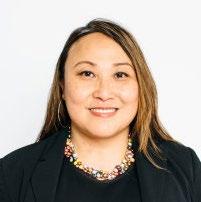
1:00 pm – 2:30 pm


AFTERNOON PLENARY
Tennessee and Beyond. The Fallout of Refusing Federal Aid

Location: Belmont 1, 2, 5, 6, Level 4
Tennessee is following a disturbing trend of attacks on people at risk of HIV. At the core of these attacks is an agenda to limit the privacy rights of LGBTQ Americans. Equally troubling is the Braidwood Management case in Texas, which, if affirmed, will gut preventative care from the Affordable Care Act. These attacks are deliberate and calculated – not sound policy, political, and are dangerous.

Presenters

18 2023 BIOMEDICAL HIV PREVENTION SUMMIT SUMMIT AFTERNOON PLENARY TUE 4/11
Toni Newman, Director of The Coalition for Justice and Equality Across Movements
José Abrigo, HIV Project Director, Lambda Legal
Sharon W. Hurt, Executive Director, Street Works
Cecilia Chung 鍾紹琪, Senior Director of Strategic Initiatives and Evaluation, Transgender Law Center
Kelley Robinson, President, Human Rights Campaign
The Culture of Sex and Sexual Pleasure in Faith Spaces
Location: Condesa 3, Level 2
Track: Impactful community mobilization and advocacy strategies
Level: Intermediate
Presenter:
Cary Goodman, The Balm In Gilead, Inc.
Conversations of sex and sexuality in many places of worship is seemingly silent. Many congregations address healthy sexuality openly and directly. However, many send messages that sex and sexuality are not topics that are not generally open for discussion. Moreover, some faith leaders, they tend to avoid the topic of sex and sexuality all together. While secular (non-religious) society is very open about expressing sex, many churches are silent. The major challenge is saying nothing still sends a strong message. The impact of this silence generally presents shameful undertones around the topics of sex and sexuality in the church. This session will give a broader look at religious beliefs of sex - providing research and data, biblical context and strategic ways faith leaders can address the fundamentals of sex and pleasure in their congregations.
Hey CIS, can we talk….? Black Women Sexuality and PrEP
Location: Condesa 4, Level 2
Track: African American Women and PrEP
Level: Beginner
Presenters:
Dr. Samantha Hughes, MPA, DM, Washington University in St. Louis, St. Louis, MO
LaTanya Thomas Patton, BS, Senior Program Manager, Washington University in St. Louis, St. Louis, MO
Kamina Ballard, BA, Program and Data Manager, Washington University in St. Louis, St. Louis, MO
Claudia Jones, MPH, Community Project Manager, Washington University in St. Louis, St. Louis, MO
Dr. Whitney Irie, Boston College School of Social Work, Chestnut Hill, MA
This session focuses on the CIS Gender Black women’s sexuality and HIV/STI prevention through education on PrEP and PEP. Our goal is to provide an interactive educational experience to reduce the stigma of HIV by examining the cultural beliefs and traditional norms in the black community. In addition, the participants will gain knowledge of the essential components needed for their HIV prevention toolkit.
Making
Biomedical Interventions Accessible
to Transgender Persons and Gender Non-conforming
Location: Condesa 9, Level 2
Track: Capacity Building to strengthen organizational effectiveness on PrEP and U=U services
Level: Intermediate
Presenters:
Oscar Marquez- Primary Care Development Corporation, Orange, CA
Queen Victoria Ortega- CONOTEC, Los Angeles, CA
The lack of gender affirming care creates a unique challenge that must be addressed to expand access and engage Transgender Persons and Gender Nonconforming (TGNC) in biomedical services. Preexposure prophylaxis (PrEP), antiretroviral therapy (ART), and undetectable = untransmittable (U=U) messaging, are examples of HIV services that must be prioritized among TGNC persons to improve health outcomes among these communities. One way to elevate these services is through creating activities to intentionally bring together providers and TGNB. The Primary Care Development Corporation (PCDC), through its capacity building assistance program (CBA), in collaboration with a group of identity consultants, hosted a learning collaborative (LC) to elevate the needs of TGNC in prevention settings and incentivize the dialogue between providers and patients. The LC hosted six (6) learning sessions; three (3) virtual sessions in English, one (1) virtual session in Spanish, and two (2) in-person sessions in Spanish.
2023 BIOMEDICAL HIV PREVENTION SUMMIT 19
TUE 4/11 2:45
– 4:15
SUMMIT WORKSHOPS: SESSION 2
pm
pm Session 2 Workshops
Missing Voices: Engagement of CisHet Black Men in HIV Research
Location: Condesa 5 & 6, Level 2
Track: Community participation in HIV biomedical prevention research
Level: Beginner
Presenters:
James Lilly, Seattle HIV Vaccine Trials Unit, Seattle, WA
Jorge Benitez, Columbia Research Unit, New York, NY
Aaron Ferguson, University of Alabama at Birmingham, Birmingham, AL
Kevin Patterson, Jackson State University, Jackson, MS
Moderator: Louis Shackelford, HIV Vaccine Trials Network (HVTN), Seattle, WA
Missing Voices is a moderated panel discussion highlighting effective strategies to engage cisgender heterosexual (CisHet) men in HIV research. Our panelists and moderator are all community engagement experts in HIV clinical research who identify as Black CisHet men (of various backgrounds) with decades of experience building solidarity in communities across the United States. This workshop will spotlight best practices for CisHet male engagement by examining successful methods and programming employed by our experts. Our workshop will also explore overcoming barriers such as toxic masculinity, heterosexual privilege, cisgender male privilege, sexism, racism, patriarchy, homophobia, transphobia, sex-/gender-based stigmas, and misogyny during CisHet male engagement. Likewise, our experts will provide insights into addressing HIV stigma and overcoming cultural pressures around gender and sexuality from their journeys in the prevention field. The goal is to equip the audience with tools to increase the engagement of CisHet men in biomedical HIV research.
Módulo de Entrenamiento en Investigación en Prevención del VIH
Location: Mont Royal 1, Level 4
Track: Prevención biomédica para personas hispanoparlantes
Level: Beginner
Presenters:
Pedro Goicochea, MS
Rafael Gonzalez, BA
Tasia Baldwin, MS, MA
Patricia Segura, MPH
La investigación es uno de los pilares que contribuyen a terminar la epidemia de VIH en los Estados Unidos contribuyendo al descubrimiento de nuevas estrategias de prevención que se acomoden a los estilos de vida de las poblaciones vulnerables a la epidemia. El Latinx Caucus del Legacy Project de HANC ha traducido y adaptado culturalmente un módulo de capacitación en investigación en prevención de VIH (MIPreVIH) para educar a comunidades hispanoparlantes acerca de los beneficios de la investigación biomédica. Al finalizar este taller interactivo los participantes:
· Conocerán el proceso de investigación clínica,
· Aprenderán acerca de las entidades que vigilan y monitorean la investigación, y el rol que juega la comunidad en la investigación,
· Se informarán acerca de las investigaciones más relevantes que dieron lugar a las actuales estrategias de prevención de VIH existentes actualmente,
· Sabrán cómo acceder gratuitamente y aplicar el módulo a sus contextos locales.
Not ready to stop Chemsex: Lessons learned from a town-hall
Location: Yaletown 4, Level 4
Track: Pleasure, erotism and the politics of sex positivity
Level: Beginner
Presenters:
Andres Acosta Ardila, QLatinx, Orlando, FL Gabriella Rodriguez, QLatinx, Orlando, FL
Understanding that Chemsex is a reality of the LGBTQ+ community our team at Qlatinx hosted a special harm reduction town hall to gather feedback from the community, convene different organizations that provide resources, and educate the public on harm reduction. This workshop will start with a presentation about the basic principles of harm reduction and of chemsex culture. Then we will present the harm reduction strategies for people who practice chemsex we learned from people with lived experience and provide a handout for participants outlining those strategies. Finally, the workshop will close with a discussion on the finding of the harm reduction community feedback survey that was distributed after the town hall.
20 2023 BIOMEDICAL HIV PREVENTION SUMMIT SUMMIT WORKSHOPS: SESSION 2 TUE 4/11
PrEP as a Safety Planning Tool for Survivors of IPV
Location: Yaletown 1, Level 4
Track: Impactful community mobilization and advocacy strategies
Level: Beginner
Presenters:
Ashley Slye, Deputy Director, National Network to End Domestic Violence, Washington DC
Survivors of intimate partner violence (IPV) may experience reproductive coercion or sexual violence which could lead to an increased risk of acquiring HIV. One study showed that for survivors experiencing IPV they have a 4x greater risk of acquiring an STI, including HIV, than those not experiencing IPV. We know that for survivor’s condom negotiation or other safe sex practices may not be possible. Therefore, PrEP (pre-exposure prophylaxis) is a discreet option for a survivor of IPV who is interested in taking back some control over their sexual health and wanting to protect themselves from potentially acquiring HIV, without their partners knowledge. HIV advocates should feel comfortable discussing the benefits of PrEP for someone who may be experiencing IPV and be able to incorporate it into a safety plan with a survivor.
The role of doxycycline post-exposure prophylaxis (doxyPEP) in sexual pleasure
Location: Mont Royal 2, Level 4
Track: New technologies for biomedical HIV prevention
Level: Intermediate
Presenters:
Perkins, R.C., School of Nursing, University of Washington, Seattle, WA
Fredericksen, R.J., Department of Medicine, University of Washington, Seattle, WA
Christopoulos, K., Zuckerberg San Francisco General Hospital, University of California, San Francisco, San Francisco, CA
Luetkemeyer, A., Zuckerberg San Francisco General Hospital, University of California, San Francisco, San Francisco, CA
Dombrowski, J., Public Health-Seattle King County, Seattle, WA
Cohen, S., San Francisco Department of Public Health, San Francisco, CA
Celum, C., Department of Epidemiology, University of Washington, Seattle, WA, Department of Global Health, University of Washington, Seattle, WA
Sexual pleasure is key to sexual health and wellbeing and is associated with condomless sex and PrEP use among men who have sex with men (MSM). We sought to understand the meaning of sexual pleasure and how doxyPEP use influences sexual pleasure and sexual quality of life among MSM on PrEP enrolled in the DoxyPEP clinical trial.
PrEP Housing: Addressing PrEP Adherence Using A Housing First Approach
Location: Yaletown 3, Level 4
Track: Community participation in HIV biomedical prevention research
Level: Beginner
Presenters:
Anthony E. Fox, Ph.D.(c), LGPC, MS, DC Health Department, Washington, DC
Chantil Thomas, MA, DC Health Department, Washington, DC
DC Health Department launched the jurisdiction’s first HIV Prevention Housing Model in 2020. Sharing lessons learned and best practices, DC Health staff will give an overview of their innovative approach to addressing PrEP adherence and homelessness via PrEP Housing. PrEP Housing is a transitional housing program intended to increased health outcomes for men who have sex with men (MSM) of color, ages 24 – 35, who are at risk of acquiring HIV.
No Fats, No Femmes, No Asians
Location: Yaletown 2, Level 4
Track: Pleasure, erotism and the politics of sex positivity
Level: Beginner
Presenters:
Benjamin Ignalino, Family Health Centers of San Diego, San Diego, CA
Danielle Miguel
Christopher Aono
Mackie Bella
Preston Tang
F*** your NO – reclaiming our power, identity, and sexuality. We welcome attendees of the Biomedical Prevention Summit to a presentation to discuss the historical context and consequences of systemic racism that fuel stereotypes of Asian men and women and its impact on HIV prevention. This is a workshop you do not want to miss.
2023 BIOMEDICAL HIV PREVENTION SUMMIT 21
SUMMIT WORKSHOPS: SESSION 2 TUE 4/11
(The PYNK) Perceptions You Never Knew Impact HIV Prevention
Location: Yaletown 2, Level 4
Track: African American Women and PrEP
Level: Intermediate
Presenters:
Gabriella Spencer, NMAC, Washington, DC
Chantil Thomas, M.A., NMAC, Washington, DC
Exploring how stigma, sexual oppression and respectability politics impact pro-active sexual healthcare for Women of Color, GLOW, Growing Leadership Opportunities for Women, host a robust panel discussion featuring sexual health experts and thought leaders from various communities. Topics addressed include but are not limited to:
· Perception of risk Lack of education, awareness, and engagement regarding PrEP and PEP Systemic racism Stereotypes and Stigma
Can’t Talk about a Biomedical Sexual Revolution without Reproductive Justice
Location: Mont Royal 2, Level 4
Track: Impactful community mobilization and advocacy strategies
Level: Intermediate
Presenters:
Cheryl Radeloff, UNLV, Las Vegas, NV
Leana Ramirez, the Center Las Vegas, Las Vegas, NV
Using Nevada as case study, a panel will discuss the current state of biomedical interventions for HIV and reproduction access in Nevada, from a legal, legislative, clinical, and client perspective and discuss the need for reproductive justice to be embedded in HIV prevention and care approaches.
Culturally Informed Approach to HIV Prevention Research in Kink-Involved Populations
Location: Condesa 4, Level 2
Track: Community participation in HIV biomedical prevention research
Level: Beginner
Presenters:
Kaston D. Anderson-Carpenter, PhD, MPH; Michigan State University, East Lansing, MI
Erik Wert, DO, MPH; Capital Internal Medicine Associates, P.C., Lansing, MI
Anna Randall, DHS, MSW, MPH; The Alternative Sexualities Health Research Alliance, Rio Vista, CA
Chris Nguyen, PharmD; Gilead Sciences, Inc., Foster City, CA
Joshua Gruber, PhD, MPH; Gilead Sciences, Inc., Foster City, CA
Richard A. Sprott, PhD; Department of Human Development and Women’s Studies, California State University, East Bay & The Alternative Sexualities Health Research Alliance, Rio Vista, CA
Estimates suggest that kink-identified individuals comprise 20% of the population. Despite being at an elevated risk of HIV acquisition, no data exists regarding their PrEP uptake. Given the effectiveness of community-based research to improve health outcomes, this presentation will highlight an innovative community-engaged study to increase PrEP uptake in kink-identified communities.
Long-Acting Injectable: Revolutionary Prevention Drugs Require Revolutionary Adaptations in Delivery
Location: Condesa 5 & 6, Level 2
Track: New technologies for biomedical HIV prevention
Level: Intermediate
Presenters:
Sonia Canzater, O’Neill Institute, Washington, DC Kirk Grisham, O’Neill Institute, Washington, DC
Marissa Miller, Trans Solutions Research & Resource Center, Indianapolis, IN
Rupa Patel, Washington University, Washington, DC Jim Pickett, Independent, Chicago, IL
Current delivery models for longer-acting injectable (LAI) PrEP require consumers to travel to outpatient settings and be seen by providers qualified to deliver injections. Yet, many providers serving HIV-impacted populations do not have sufficient capacity to offer LAI PrEP at the volume necessary to end the epidemic. Additionally, structural barriers such as stigma, and inequities within the United States healthcare system prevent many from engaging in HIV prevention in traditional clinic spaces. LAI therapies may transform HIV prevention, yet to
22 2023 BIOMEDICAL HIV PREVENTION SUMMIT SUMMIT WORKSHOPS: SESSION 3 TUE 4/11 4:30
– 6:00
Session
Workshops
pm
pm
3
realize this, we must identify areas for policy to decrease delivery barriers and adopt new practices to improve uptake. This workshop will explore how the HIV prevention community can draw lessons from other fields to successfully develop, advocate for, and implement alternative delivery models for LAI to increase access, and realize the promise of these revolutionary interventions.
Federal funding needed for a National PrEP Program
Location: Condesa 9, Level 2
Track: Strategies for a National PrEP Program
Level: Advanced
Presenters:
Carl Schmid, HIV+Hepatitis Policy Institute, Washington, DC
Kevin Herwig, HIV+Hepatitis Policy Institute, Washington, DC
We must make sure that everyone who can benefit from PrEP knows about it, is able to see culturally competent providers, and does not face unaffordable costs. We also must eliminate stark racial, ethnic, and gender disparities in PrEP access. To reach these goals, additional funding for a National PrEP Program is needed, particularly for the uninsured, to cover the cost of medications, associated labs, prescriber time, and support community and provider outreach, and enable more clinics and community-based organizations to provide PrEP. HIV+Hepatitis Policy Institute engaged RTI International to calculate how much funding would be needed to increase PrEP uptake by modeling the population in need of PrEP by race/ethnicity, insurance status, medication and associated costs, and HIV transmission group. Our interactive workshop will review the model’s assumptions and results. Attendees will discuss if the results match their experience and needs and the likelihood of securing the necessary funding.
Pleasure Principle: Brown Sugar Vol PrEP
Location: Mont Royal 1, Level 4
Track: Pleasure, erotism and the politics of sex positivity
Level: Beginner
Presenters:
D’Metris Welters, Abounding Prosperity Inc., Dallas, TX
Leisha McKinley-Beach, CUSH Health Impact Inc., Atlanta, GA
Camille Stanley/DC Department of Health/ Washington, DC
Sexual health is discussed in an academic framework that addresses individual risk behaviors, disease prevention, and the negative outcomes that Black women face as a result of our personal choices. Despite being a key driver for why humans engage in sex, sexual pleasure is often left out of evidencebased and behavioral interventions, programmatic development and media strategies. This interactive workshop goes beyond condom eroticization and emphasizes storytelling to assist the audience with both connecting and feeling empowered to contribute to the conversation around pleasurable desires for Black women. Small group activities will allow participants to explore intimate connection, sexual desire and sexual pleasure, before discussing with the larger group. Supplemental activities include the presentation of props, strategies and mediums to support or enhance pleasurable activities.
Spearheading national prep programing through peer led collaborative practice agreements
Location: Condesa 3, Level 2
Track: Strategies for a National PrEP Program
Level: Intermediate
Presenters:
David M. Mosqueda, Altamed Health Services, Los Angeles, CA
Dino Selders, Altamed Health Services, Los Angeles, CA
PrEP Navigators are an essential resource in reducing barriers to accessing PrEP/PEP. They possess valuable knowledge about the communities they serve as well as the medical system. This workshop will show how peer navigators can act as the nexus of a national PrEP program that is built around pharmacy initiated PrEP/PEP services, and give participants the tools they need to create sex positive spaces for biomedical prevention within their organization. And what better way to show that than with a game! Name your character, become the patient, and go on an adventure to see if you can access PrEP in your community or if a new model is necessary to increase access.
2023 BIOMEDICAL HIV PREVENTION SUMMIT 23
SUMMIT WORKSHOPS: SESSION 3 TUE 4/11
Barriers in Healthcare: The Black & Trans Male Experience
Location: Yaletown 1, Level 4
Track: TGNC People of Color and Biomedical Prevention Interventions
Level: Advanced
Presenter:
Sybastian Smith, National Center for Transgender Equality/ I Am Human Foundation, Atlanta, GA
Healthcare disparities faced by BIPOC transgender men are often not discussed in a way that is affirming to gender identity, race and ethnicity. Trans communities are composed of very diverse groups of people. The USA itself has become a more diverse nation; therefore, health care systems and providers have a duty to respond to patients’ varied perspectives around health and wellbeing. Failure to understand and manage social and cultural differences would have significant health consequences for trans masculine patients in minority racial groups and in the broader fight to eradicate HIV. My workshop discusses disparities and barriers that, particularly, Black transmen endure based upon their gender identity, race, ethnicity and the intersection of those things when attempting to access HIV and basic healthcare resources, as well as provide ways to actively remove barriers and address stigma related to transmen and sexual health.
PEP – The Rodney Dangerfield of HIV Prevention
Location: Yaletown 3, Level 4
Track: Capacity Building to strengthen PrEP and U=U services
Level: Intermediate
Presenter: Mario G. Forte, P.S., Cempa Community Care, Chattanooga, TN
Partnering with outside agencies, such as Rape Crisis Centers and Urgent Care facilities, this has allowed Cempa Community Care to develop PEP protocols and PEP Starter Kits (containing 3 days of PEP treatment medication), providing the opportunity
- specifically for cisgender women to learn about access to PrEP. This program has seen an increase of PrEP uptake in cisgender women from 1.5% to 12% over a two-year period. This workshop will detail specifically how this program was implemented.
PrEP in Black America An Equity Movement in HIV Prevention
Location: Yaletown 4, Level 4
Track: Impactful Community Mobilization and Advocacy Strategies
Level: Intermediate
Presenters:
Danielle M. Campbell, University of California, San Diego, Los Angeles, CA
Raniyah Copeland, Equity & Impact Solutions, Los Angeles, CA
Abraham Johnson, Treatment Action Group, Atlanta, GA
Michael Chancley, PrEP4All, Atlanta, GA
Stacy Smallwood, Georgia Southern University, Statesboro, GA
Justin C. Smith, Atlanta, GA
Black people in the US bear a disproportionate burden of HIV, representing approximately 13% of the population while comprising more than 40% of incident HIV diagnoses in 2019. Despite this, biomedical HIV prevention tools remain underutilized by Black people and more than 90% of those who can benefit from PrEP have not been prescribed PrEP. The PrEP in Black America Summit (PIBA) was convened by a cadre of Black HIV activists, advocates, leaders, and public health professionals to address these frustrating factors on the 10th anniversary of the Food and Drug Administration’s approval of the first medication for biomedical HIV prevention. Summit leaders gathered more than 150 individuals, in person and virtual, in the spirit of confronting the historical injustices and racebased discrimination that continue to drive HIV and other sexual health inequities experienced by Black communities to develop a Black-focused agenda or “roadmap” for HIV prevention.
24 2023 BIOMEDICAL HIV PREVENTION SUMMIT SUMMIT WORKSHOPS: SESSION 3 TUE 4/11
Wednesday, April 12, 2022
8:30 am – 10:00 am
MORNING PLENARY
Taking control over our bodies: Black women, sex, violence, and HIV




Location: Belmont 1, 2, 5, 6, Level 4
Black cisgender women are disproportionately affected by HIV, with a rate 11 times higher than that of white women. Also, nearly two-thirds of African American/Black transgender women are living with HIV. Economic disparities, oppressive social systems, and other structural inequalities all contribute to the health disparities that Black women face. We will look at the intersections between HIV, systemic racism, sexism, intimate partner violence, and the sexual oppression of Black women which fuels generational stigma. Join us to discuss the role of each of these determinants as it relates to women’s ability to enjoy their sexuality and make healthy decisions about their own bodies.
Speakers

WED 4/12
SUMMIT MORNING PLENARY
Danielle Campbell, University of California San Diego
Gabriella Spencer, Program Manager, NMAC
Jamila K Stockman, PhD, MPH, Professor of Medicine, VC Health Sciences, University of California, San Diego
Kayla Moore, Wellness Services Manager, Oakland LGBTQ Community Center
2023 BIOMEDICAL HIV PREVENTION SUMMIT 25
HIV Prevention Cycle of Care: A PrEP Implementation Model
Location: Condesa 5 & 6, Level 2
Track: Impactful community mobilization and advocacy strategies
Level: Intermediate
Presented by Gilead Sciences
Discover a new method for implementing HIV prevention or care programs that can help facilitate better understanding around the systemic and social challenges for men who have sex with men. This 90-minute workshop will take place on Wednesday, April 12 from 10:30a.m. – 12:00 p.m., beginning with an overview of the new HIV prevention cycle by Dr. Patrick Sullivan, one of the authors of the recent Lancet HIV article, “Pre-exposure prophylaxis in the era of emerging methods for men who have sex with men in the USA: the HIV Prevention Cycle of Care model.” The session will continue with a discussion between the HIV prevention experts, including Dr. Sullivan (Professor at Rollins School of Public Health at Emory University and Principal Scientist for AIDSVu), Greg Millett (Vice President and Director at amfAR) and Deborah Wafer (Senior Director of Public Affairs at Gilead Sciences), focusing on the overarching issues and opportunities for implementing the model, how it can help achieve health equity and key considerations for implementing the model in other groups.
CAB 4 PrEP: Opportunity for Advancing Equity and Improving Access
Location: Mont Royal 2, Level 4
Track: New technologies for biomedical HIV prevention
Level: Intermediate
Presenters:
John Meade Jr., MPH, AVAC, New York, NY
Kirk Grisham, MPH, O’Neill Institute-Georgetown University Law Center, Washington, DC
Pedro Alonso Serrano, MPH, CPH, Northwestern University, Chicago, IL
Quintin Robinson, MD, AvitaCARE Atlanta/MedCura Health, Atlanta, GA
Carlton Mays, Washington Health Institute, Washington, DC
In December 2021, The U.S Food and Drug Administration (FDA) approved the first injectable HIV Pre-exposure Prophylaxis (PrEP) medication, cabotegravir, or CAB for PrEP. This comes a decade after daily oral PrEP was approved by the FDA. Clinical studies demonstrated that injectable CAB for PrEP was statistically superior to oral PrEP in MSM, Transgender women and cisgender women. According to CDC data, while 25% of people eligible for PrEP were prescribed it in 2020, coverage is not equitable. Only 10.4% of women, 9% of Black and 16% of Latino/a/x individuals estimated to be most in need of PrEP had a prescription. It is evident that more innovative approaches are needed to reach these populations. Injectable PrEP uptake in the USA has the potential to reduce HIV infections, but only if its introduction can address the impediments to its implementation. Participants will engage with panelists that have experience with injectable cabotegravir.
Emerging Evidence Addressing the PrEP Continuum for Black Cisgender Women
Location: Condesa 3, Level 2
Track: African American Women and PrEP Level: Intermediate
Presenters:
Tiara C. Willie, Johns Hopkins Bloomberg School of Public Health, Baltimore, MD
Deja Knight, Johns Hopkins Bloomberg School of Public Health, Baltimore, MD
Karlye Phillips, Johns Hopkins Bloomberg School of Public Health, Baltimore, MD
Kamila A. Alexander, Johns Hopkins School of Nursing, Baltimore, MD
Brenice Duroseau, Johns Hopkins School of Nursing, Baltimore, MD
DaJaneil McCree, Johns Hopkins School of Nursing, Baltimore, MD
The purpose of this workshop is to discuss PrEP initiation and persistence among Black cisgender women with an emphasis on specific subpopulations including Black queer women and Black women experiencing gender-based violence (GBV). This workshop will bring together an interdisciplinary group of scholars, health care professionals, and HIV
26 2023 BIOMEDICAL HIV PREVENTION SUMMIT SUMMIT WORKSHOPS: SESSION 4 WED 4/12 10:30
am – 12:00 pm Session 4 Workshops
service providers who are experts in HIV care for marginalized women. This diverse group of panelists will discuss findings that underscore the barriers and facilitators of PrEP initiation and persistence among Black cisgender women in the South. They will also generate discussion about best practices in multiple community and health care settings regarding PrEP among Black women. The workshop will include an interactive structured discussion with participants in order to generate protocols for collaboration between health care professionals in HIV care and community settings with GBV support systems, and HIV prevention practitioners.
HBCU Stakeholder-led HIV Prevention: Project PEER (Prevent, Engage, Empower, Respond)
Location: Yaletown 1, Level 4
Track: Community participation in HIV biomedical prevention research
Level: Beginner
Presenters:
Ebonee Johnson, University of Iowa, Iowa City, IA
Susan Flowers, Southern University, Baton Rouge, LA
Milan Jackson, Southern University, Baton Rouge, LA
Robert Benton Jr., Southern University, Baton Rouge, LA
Johnathan Benton, Southern University, Baton Rouge, LA
Anaya Vaughn, Southern University, Baton Rouge, LA
Participants will learn how to leverage the infrastructure of a HBCU, in collaboration with community-based organizations and clinics, and a research-intensive university, to develop, implement, and evaluate an evidence-based, culturallycongruent HIV and substance use prevention and linkages-to-care intervention entitled Project PEER (Prevent, Engage, Empower, Respond. Facilitators, including project directors, lead navigator, and HBCU students (prevention peer navigators), will describe the core components of Project PEER, centering campus community mobilization and partnership. Participants will hear from HBCU students regarding the impact of this on-campus project and leave with specific strategies to partner with studentorganizations within HBCU systems. Although the presentation will primarily focus on the planning and implementation phases, specific data-outcomes (e.g., testing, change in pre-/posttest knowledge/ attitudes) will also be discussed.
Implementing Innovative Interventions Amongst Latin@ TGNC and Communities of Color
Location: Mont Royal 1, Level 4
Track: TGNC People of Color and Biomedical Prevention Interventions
Level: Intermediate Presenters: Maria Roman-Taylorson, The TransLatin@ Coalition, Los Angeles, CA
Rita Garcia, The TransLatin@ Coalition, Los Angeles, CA Ana Garcia, The TransLatin@ Coalition, Los Angeles, CA Suanne Mendez, The TransLatin@ Coalition, Los Angeles, CA
The TransLatin@ Coalition (TLC) stands behind its mission to better serve the TGNC community in better serving and elevating the communities quality of life. It has created and implemented innovative techniques that focuses on addressing the social determinants of health amongst TGNC for uptake of P.r.E.P. as a biomedical intervention in the prevention of HIV/AIDS. TLC has implemented innovative interventions amongst Latin@ TGNC and communities of Color that are led by the community in which it serves, better connecting it to the community and better addressing the source of the issues. This workshop guides providers and community leaders in the humanization of the community while using better practices and setting forth strategies in addressing the broader issues of TGNC to provide compassionate care to its patients and clients by providing step by step guidance to address the inequalities in healthcare that prevent PrEP uptake in TGNC communities.
La importancia del estatus neutral para los nuevos inmigrantes
Location: Yaletown 2, Level 4
Track: Prevención biomédica para personas hispanoparlantes
Level: Beginner
Presenters:
Karin Eyzell, Voces Latinas, Jackson Heights, Queens, NY
Hemos recibido en nuestra organización muchos clientes latinxs que son parte de los nuevos inmigrantes, solicitantes de asilo, que están arribando a Nueva York en autobuses desde Texas. Muchos de estos clientes están viviendo con VIH,
2023 BIOMEDICAL HIV PREVENTION SUMMIT 27
SUMMIT WORKSHOPS: SESSION 4 WED 4/12
algunos son nuevos diagnosticados y otros desean conectarse al tratamiento porque ya tienen un diagnóstico. Hemos observado un incremento de casos positivos en los últimos meses. Es por ello que se hace imprescindible reforzar la educación preventiva del VIH, y destacar la importancia de mantener el estatus neutral en los individuos. El objetivo es dar a conocer la situación que atraviesa Nueva York, planteando estrategias que permitan la reducción de los índices de transmisión del VIH en la comunidad. Asimismo destacar las barreras para acceder a los servicios de prevención como PrEP/ PEP o de tratamiento del VIH, y cómo estamos actuando para enfrentar y disminuir estas inequidades. Destacaremos la importancia del sexo positivo.
U=U <3 PrEP: Capacity building to support status neutral approaches
Location: Condesa 9, Level 2
Track: Capacity Building to strengthen organizational effectiveness on PrEP and U=U services
Level: Beginner
Presenters:
Deondre Moore, U=U plus, Atlanta, GA
Bryan Tyler Orr, Tarrant County Public Health & U=U plus, Fort Worth, TX
Mariah Wilberg, U=U plus, St. Paul, MN
Already on the rise, status neutral approaches to HIV care and prevention will likely become even more widespread given federal policy and program changes to support their implementation. This interactive workshop aims to support status neutral implementation on a micro and macro level. Participants will first receive a grounding in status neutral, with an emphasis on prevention. Interactive presentation software will be used throughout the session to capture ideas, questions, concerns, thoughts, and unmet needs in real time. Next, the large group will answer and discuss questions about status neutral in their work. To close, small group role plays will build confidence and skills in messaging inclusive of PrEP and U=U to support status neutral prevention, outreach, and education. After the conference, the feedback collected throughout the presentation will be shared broadly with federal partners and within the HIV community to inform future program implementation, training, and capacity building efforts.
We Have Sex, Too! Biomedical Interventions for Older Gay Men
Location: Condesa 4, Level 2
Track: Pleasure, erotism and the politics of sex positivity
Level: Beginner
Presenter:
Rodney McCoy, Us Helping Us, Washington, DC Moisés Agosto-Rosario, NMAC, Washington, DC
HIV prevention and treatment/care professionals are beginning to recognize and address the myriad of issues pertaining to living with HIV and aging. Simultaneously, the rise in popularity of PrEP and U=U allows us to explore sexual pleasure and prevention in ways never thought possible during the early years of the AIDS crisis. Yet most biomedical campaigns exclusively feature younger looking people. Where are the campaigns for older men? What does the erasure of older HIV negative men say about our capacity and willingness to address the issues of seniors who also crave satisfying and healthy sex lives? This workshop, We Have Sex, Too! will give participants the opportunity to learn more about these concerns, including the necessity for PrEP campaigns and other sex-positive health initiatives geared for older gay and bisexual men.
What’s This Copay? USPSTF PrEP
Recommendations and Insurance
Location: Yaletown 4, Level 4
Track: Public and Private Insurance for PrEP Level: Intermediate
Presenters:
Nick Armstrong, The AIDS Institute, Washington, DC
Joseph Cherabie MD, MSc, Washington University in St. Louis, St. Louis, MO
Kate Curoe, Washington University in St. Louis, St. Louis, MO
Nicole Elinoff, MPH, CPH, CHES®, NASTAD, Washington, DC
Michael Gendernalik, Washington University in St. Louis, St. Louis, MO
Rachel Klein, The AIDS Institute, Washington, DC
Mike Weir, MPH, NASTAD, Washington, DC
In 2019, the US Preventive Services Task Force gave PrEP a grade “A” recommendation, requiring most Affordable Care Act (ACA) covered private
28 2023 BIOMEDICAL HIV PREVENTION SUMMIT SUMMIT WORKSHOPS: SESSION 4 WED 4/12
insurance plans to cover PrEP and associated ancillary services without out-of-pocket costs. But many PrEP users continue to face unexpected bills when they get a prescription or refill, and insurers, labs, and providers have said there are challenges in getting free PrEP. When should PrEP be free, and how can insurers, labs, and providers work together to make sure that happens? Getting this right is a crucial step to achieving the nation’s HIV prevention goals. This workshop will give PrEP users and providers the information they need to advocate for themselves, their clients, and their community, including: the regulatory history research on PrEP coverage compliance in 2023 ACA Marketplace plans, the billing and coding, and first-hand accounts from PrEP providers navigating the system.
HIV Prevention Access in the Transgender Community of East Tennessee
Location: Yaletown 3, Level 4
Track: Implementation Research and Evaluation
Level: Intermediate
Presenters:
Annie Kolarik, Cherokee Health Systems, Knoxville, TN Eboni Winford, Cherokee Health Systems, Knoxville, TN
Transgender and gender diverse (TGD) individuals experience high levels of discrimination and stigma within the U.S. Healthcare system. Levels of discrimination are particularly high in very right leaning sociopolitical environments such as East Tennessee. This leads to barriers in accessing all health care, including gender affirming hormone therapy (GAHT), primary care, behavioral health services, STI testing and treatment, and HIV prevention. On December 31st, 2021, an arsonist burned down the Planned Parenthood in Knoxville, TN. This left hundreds of transgender and gender diverse individuals without access to care. Cherokee Health Systems is the largest FQHC in the state of Tennessee. After this tragedy, leadership within the organization moved quickly to create a quality improvement project to improve access to GAHT within our organization. With entry to care, all patients were screened and offered HIV prevention.
2023 BIOMEDICAL HIV PREVENTION SUMMIT 29
SUMMIT WORKSHOPS: SESSION 4 WED 4/12
Wednesday, April 12, 2023
1:00 pm – 2:30 pm
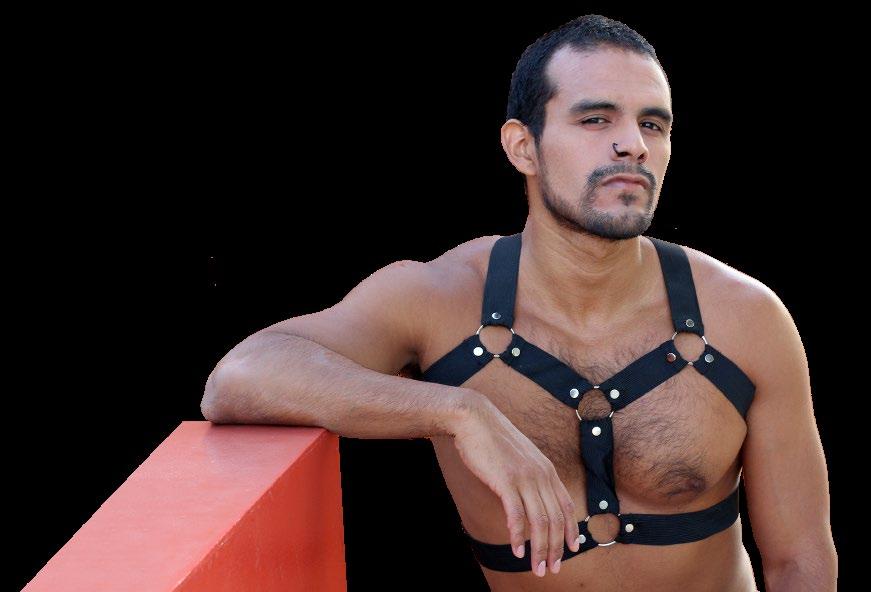
AFTERNOON PLENARY
The 2023 PrEPpy Awards and a National PrEP Program
Location: Belmont 1, 2, 5, 6, Level 4
Join us as we celebrate some of the most comprehensive PrEP/U=U campaigns during 2022 and this time the buzzwords are healthy, sexy, and pleasurable. Learn about influential community messaging and the best biomedical HIV prevention education approaches. The PrEPpy’s finalists will be showcased as the winner will be voted by the audience. Additionally, we will discuss how a comprehensive National PrEP Program could provide a domestic infrastructure to fund, implement, and coordinate the federal response to PrEP. A proposal for a National PrEP Program is on the table. PrEP advocates are building a coalition to effectively advocate for a program that serves all and bridges the gaps that exacerbate health disparities. What are the pillars of a National PrEP Program? How do we ensure equity and intentionality in the conceptualization and implementation strategies? What advocacy needs to happen from community members and leaders to strengthen our case for a national program for PrEP? How are we going to reach a NPP and protect from the religious right?
Speakers
Joe Huang-Racalto, Director of Strategic Partnerships and Policy, NMAC
Amanda Reed, MD, DO, Clinical Director, Council Oak Comprehensive Health, Hepatitis C and HIV Program, Muscogee (Creek) National Department of Health


Vignetta
Charles, PhD, CEO, Education, Training and Research (ETR)

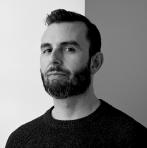
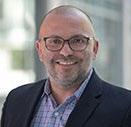
WED 4/12
SUMMIT AFTERNOON PLENARY
30 2023 BIOMEDICAL HIV PREVENTION SUMMIT
JP Cano, BSN, RN, Director of Prevention Services, Resource Center
Jeremiah Johnson, MPH, Executive Director, PrEP4All
delivered to underserved communities.”
Today in Mississippi many communities lack access to the HIV preventative care and services they need.
That’s why Gilead is proud to collaborate with Dr June Gipson and her visionary organization, My Brother’s Keeper. By meeting people where they are, My Brother’s Keeper is bringing HIV testing, prevention and treatment to underserved communities and helping empower people to take control of their sexual health.

Together we ignite change.
Together we are making HIV prevention a priority for people wherever they are. @GileadHIVUS

GILEAD, and the GILEAD Logo are trademarks of Gilead Sciences, Inc. © 2023 Gilead Sciences, Inc. All rights reserved. US-UNBC-1304 03/23
GileadHIV.com
@gileadhivus
“At My Brother’s Keeper, we are working to create systemic change in how preventative services are
JuneGipson,PhD,EdS President&CEO,MyBrother’sKeeper,Inc.
inspired by June’s story at GileadHIV.com
Get
Martes, 11 de abril de 2023
8:30 am – 10:00 am
PLENARIA DE LA MAÑANA
El sexo es natural, el sexo es divertido.” La política del sexo y el placer en la era de las pandemias
Location: Belmont 1, 2, 5, 6, Nivel 4
La prevención y el tratamiento biomédicos del VIH han generado nuevas conversaciones y cambiaron nuestra forma de practicar el sexo. Al principio, el movimiento contra el sida luchó por el derecho a disfrutar del sexo, preservando el erotismo de la experiencia y manteniéndola placentera y segura. Infórmese acerca de las perspectivas históricas de la política de la positividad sexual durante las últimas cuatro décadas de la pandemia del VIH hasta el presente con COVID y MPOX. Se hablará de cómo las intervenciones centradas en el placer pueden ayudar a tomar decisiones informadas sobre qué herramientas biomédicas de prevención del VIH utilizar sin comprometer el deseo, el placer y la conexión humana. Se debatirán temas como las perversiones, el sexo sin condón, el fetichismo, el BDSM, el Chemex, el sexo en grupo, las casas de baños/clubes de sexo, el porno, el consentimiento, etc.
Speakers
Moupali Das, Director Ejecutivo, Desarrollo Clínico, Gilead Sciences

Victoria Von Blaque, Gestora de contratos, Transgender Equity Consulting


Deondre B. Moore, activista ganador del premio GLAAD o persona del año VIH Plus 2022

Demetre Daskalakis, MD MPH, Coordinador Adjunto de la Respuesta Nacional al Mpox, Casa Blanca (asignado por el Director de la División de Prevención del VIH de los CDC)

Justin Davis (JD Blackstone), creador de contenido sexual positivo


Michelle López, Einstein CFAR

32 CUMBRE SOBRE LA PREVENCIÓN BIOMÉDICA DEL VIH 2023 MA 4/11
PLENARIA DE LA MAÑANA
Rodney McCoy, Jr., Defensor de la Comunidad
10:30 am – 12:00 pm Talleres de la sesión 1
Uso de la Cultura Como Medio para expandir PrEP
Ubicación: Yaletown 2, Level 4
Track: Prevención biomédica para personas hispanoparlantes
Nivel: Intermedio
Ponentes:
Moises Cruz Jauregui, Alameda County/east Bay
Getting to Zero, Oakland, California
Este taller está enfocado en identificar los diferentes factores que caracterizan a la cultura de los latinx o hispanohablantes, para que a partir de ellos se pueda establecer una conexión con los miembros de la comunidad. A partir de la identificación de estos, se establecerá un plan que determine el alcance de los programas, los problemas para acceso a los servicios de PrEP y como utilizar la Cultura y el modo de vida para Iniciar y mantener pacientes en PrEP. Los principales aspectos culturales de mayor influencia a utilizar en el taller son: El uso del lenguaje en español, normalización del lenguaje diverso, contratación de personal que vive y es parte de la comunidad, promoción de la Positividad Sexual, inmersión en usos y costumbres, promoción del entretenimiento y exposición de artistas locales.
Obstáculos políticos para PPrE y recomendaciones comunitarias para un programa nacional de PrEP
Ubicación: Mont Royal 2, Nivel 4
Tema: Estrategias para un programa nacional de PrEP
Nivel: Intermedio
Ponentes:
Jeremiah Johnson, MPH, PrEP4All, Michael Chancley, MSW, PrEP4All, Raniyah Copeland, MPH, Soluciones de Equidad e Impacto,
Dafina Ward, JD, Southern AIDS Coalition, Will Ramirez, MPA, Southern AIDS Coalition
El Grupo de Trabajo del Programa Nacional de PrEP, una amplia coalición de defensores de la prevención del VIH y miembros de la comunidad afectados por la epidemia del VIH, identificó recomendaciones clave para la implementación de un Programa Nacional de PrEP para personas sin seguro o con seguro insuficiente. PrEP4All, en asociación con Equity and Impact Solutions, identificó siete pasos clave para avanzar en las áreas de enfoque identificadas por el Grupo de Trabajo Nacional de PrEP y poner fin a las disparidades raciales para PrEP. Además, con la esperanza de un Programa Nacional de PrEP integral, PrEP4All y Southern AIDS Coalition han identificado políticas y prácticas a nivel estatal que podrían amenazar el éxito del programa. Este taller se centrará en los próximos pasos colectivos para desarrollar un Programa Nacional de PrEP piloto eficaz y explorará la necesidad de abordar las leyes, las políticas y los requisitos administrativos estatales que afectan al acceso a la PrEP en los EE. UU., especialmente en el sur y en las jurisdicciones que participan en los esfuerzos federales para acabar con la epidemia del VIH [EHE].
CUMBRE SOBRE LA PREVENCIÓN BIOMÉDICA DEL VIH 2023 33 TALLERES DE LA SESIÓN 1 MA 4/11






































































